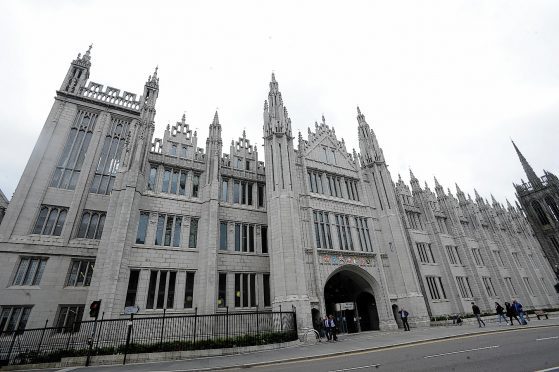Battle lines are being drawn ahead of the upcoming council budget, with the authority’s finance boss warning that “all low hanging fruit has been picked”.
Aberdeen is looking to slash £125million from its spending in the next five years and is yet to decide whether to increase council tax to plug the gap.
Coalition administration members blame decreasing Scottish Government grants for the squeeze while the opposition SNP point to Westminster austerity.
Finance convener Douglas Lumsden said that figures crunched by council officials showed that the city council received around 56% of its funding from business rates, 23% from council tax and 19% from government grants.
In Dundee, 17% was from rates and 69% from grants.
The full council meets on January 19 to thrash out next year’s spending plans.
But SNP group leader Stephen Flynn said that the authority now had the power to raise council tax by up to 3% and also turned his fire onto the strategic transformation committee – the body set up to drive forward the “target operating model” of the council – which has cancelled another meeting.
Mr Lumsden said that the ruling Conservative, Aberdeen Labour and independent administration were still deciding on whether to raise council tax at next month’s expected budget.
He said: “We are still waiting to find out our exact settlement, but all the low hanging fruit was picked a long time ago
“It is also clear that we will once again be the lowest funded council in Scotland – behind the likes of the Western Isles.
Mr Flynn said his group were still considering their budget, adding that the current transformation committee was “entirely unnecessary”
He said: “ What we do know is that the administration simply can’t continue to moan about a lack of resources is they aren’t willing to use the powers they have to raise revenue.
“We’ve been told repeatedly that the new target operating model will be the best thing since sliced bread but, to date, we still have no information as to the impact it will have on staff nor a single full business case to back up these assertions.
“The cancellation of these meetings gives the administration the opportunity to accept that this committee is entirely unnecessary and return the decision making powers to the meetings of full council so that all elected members can play their part in the decision-making process.”
Mr Lumsden said: “The committee is a really important body and there are still really big decisions to be made.”
